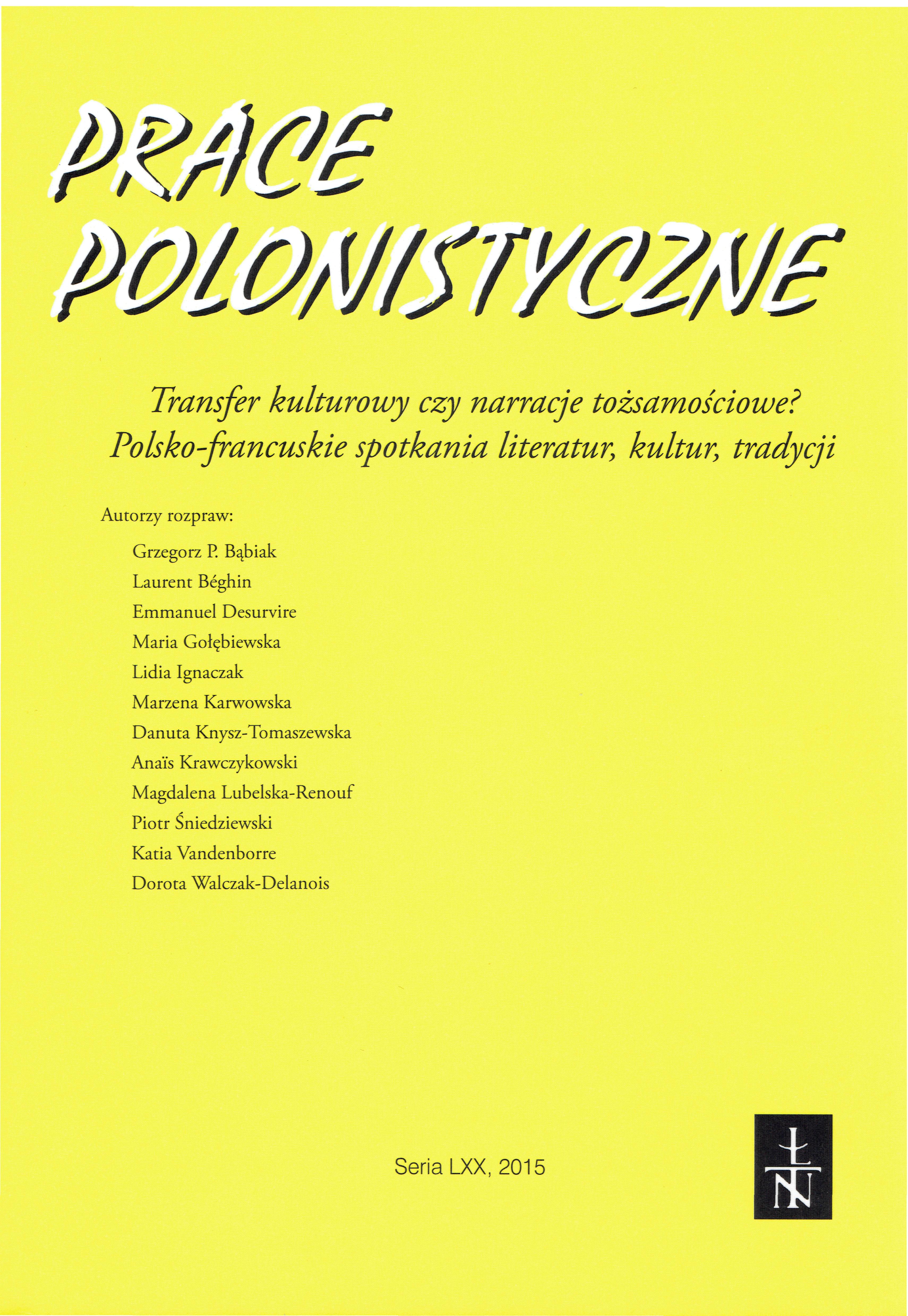Henri Bergson a Karol Irzykowski — inspiracje i paralele
Henri Bergson and Karol Irzykowski — inspirations and polemics
Author(s): Maria GołębiewskaSubject(s): Language and Literature Studies, Studies of Literature
Published by: Łódzkie Towarzystwo Naukowe
Keywords: life; spirit; matter; reality; comicality; cinematography
Summary/Abstract: The aim of my article is to indicate the inspirations provided by the Bergsonian ideas that we find in texts written by the Polish intellectualist Karol Irzykowski — these inspirations are declared explicitly, but more frequently they are suggested implicite. The inspirations are clearly noticeable in his book on the cinema (Dziesiąta Muza, 1924) as well as in his early articles and the experimental novel Pałuba (1903). On the other hand, the late book by Bergson, concerning religion and morality (Les Deux sources de la morale et de la religion, 1932), reveals a work approaching the clerc’s ideas which is declared explicite and incessantly by Irzykowski. It has to be stressed that Irzykowski is familiar with Bergson’s works, first and foremost, thanks to Polish translations and editions — as referenced in his commentaries (Henri Bergson, Le Rire. Essai sur la signification du comique, 1900, Polish edition 1902; Henri Bergson, L’Évolution créatrice, 1907, edited in Polish in 1911). However, the Bergsonian work which seems most influential for the philosophical theses of Irzykowski, i.e. Matière et mémoire. Essai sur la relation du corps à l’esprit (1896), was only published in Polish in 1926. It is possible that the presence of theses from this book in the works of Irzykowski is the result of his familiarity with philosophical currents and discussions of that time. Irzykowski’s works address, among others, the essential question of “reality” considered at the time by Bergson (as well as by William James). The Bergsonian vitalist philosophy of life (but also the culturalist position of Wilhelm Dilthey and Georg Simmel) was a critical point of reference for Irzykowski’s own comprehension of the terms “life”, “matter”, and “spirit” in the larger context of “reality” (defined as a sum of particular beings). Irzykowski considered language and history — surely after Bergson — in the context of memory and individual biography. He postulated the subjectivisation and individualisation of historical knowledge. Just like Bergson, Irzykowski confronted mechanism and dynamism; he considered in the context of this opposition questions of comicality and laughter as well as the anthropological effects of a specific, cinematographic perception. However, Irzykowski — in contrast to Bergson in his book L’Évolution créatrice — coupled the mechanism strictly with the dynamism, grasping film as a mechanic registration of human perception, as well the art of dynamic movement. According to Irzykowski, film would be a confirmation not of the analytic, but synthetic character of human perception and cognitive faculties. Just like Bergson, Irzykowski tried to go beyond the metaphysical and psychophysical dualism towards the standpoint of monism, but with pluralistic aspects (pluralism of different “realities”). The late Bergsonian theses on religion and morality (Les Deux sources de la morale et de la religion, 1932) demonstrate, once again, some similarities between his ideas and Irzykowski’s concepts. There might seem to be many differences between them: Irzykowski consistently declared his own intellectual point of view and Bergson stressed that instinct and intuition played the most significant roles. However, in the end, Bergson discovered that he had fulfilled his life’s mission and his late declarations seem close to the clerc’s standpoint of Irzykowski.
Journal: Prace Polonistyczne
- Issue Year: 2015
- Issue No: 70
- Page Range: 81-99
- Page Count: 19
- Language: Polish

